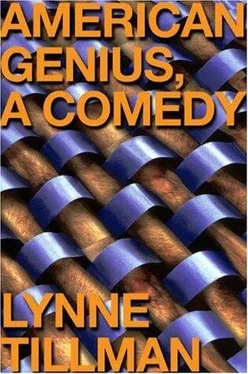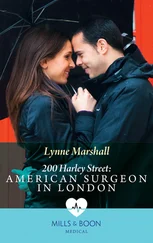By now Leslie Van Houten has finished eating her institutional dinner and may lie on a cot in her cell in the women's prison at Frontera, California, planning for her next parole hearing, expecting the worst, since her crime was heinous, and she might never be released or pardoned. I veer toward an unshakable admiration for the rule of law and, in the American way, with undeniable fascination toward those who break it, and to those who, failing to find truth, mete out justice, or for those who, professing any and all law restrictive, violate it, especially a criminal who applies a unique standard that appears just or more human, though I don't support violent crimes against persons. Leslie Van Houten was the least culpable of the girls in the Manson Family, she's now sustained by hope and religion, she's been born again, and even if she's released when she's old, her youth long gone, she knows in her heart she's been rehabilitated, she knows it, she's not that girl who stuck a knife into Rosemary LaBianca's back nineteen times. Still, Leslie relives her absurd and terrible crime, her lawless association with Manson and the Family, her devoted love of him, and does penance, but it can never be enough, she can't explain herself, the girl she was then, she doesn't know why she did what she did. It doesn't make sense, it doesn't matter that she'd never do it again. This too doesn't make sense, and she can't recognize that person, but it doesn't matter.
For me, only a seance lies ahead, with its bizarre seductions, and I focus on it, conjuring the Rotunda Room and several faces and bodies convened around a dark wood round table. I'm wondering how the Magician will conduct it, if it has specific rules and rites, like a religious ceremony, when I hear my name shouted several times by what sounds like several voices, an unusual occurrence, since there's an unwritten law, part of the honor code, that we residents shouldn't raise our voices and interrupt another's peace. They shout my name again, more insistently. I put on my robe and go to the window, there are some residents waving, "Come outside," they mouth, so I gesture my willingness, but I don't want to join them. They appear anxious, even stricken-fl, the demanding man, the dour man, the fretful woman, the disconsolate young woman with asthma, and her friend, the Wineman, an unfortunate group, but at least there is no one of the staff, for which I am grateful, I fear bureaucracy and its devotees, and this must be spontaneous and ex-officio. Reluctantly, I pull on the clothes I recently discarded that lie in a mound on the floor, so the pants are wrinkled, and grab my one hundred percent virgin wool black coat, battleship-gray cashmere scarf, and furtively pat the crystal ball on the way out.
Now, what happens is strange and unbelievable, and, even as it happens, I can't believe it or countenance it, even in this peculiar, portmanteau community, it is also unique in my experience, and their fervor, a group who acts like a mob, immediately offends my sensibilities, since generally I don't appreciate outrage or moralisms of any sort from a group, and especially in a setting where we residents are encouraged to be ourselves, although that they are being themselves is a likely, unhappy fact. The demanding man speaks first. News has come to them about the seance of which they heartily disapprove and in which they want no part, they believe it's wrong for our place to have such a thing happen "under its roof." He repeats this phrase three times. I wonder if the Magician asked them to attend, though I doubt it, but some of them were in the main room when I left it, and someone must have stirred their communal bowl by dropping in the word "seance," an unpredictable seasoning. The dour man objects to seances as voodoo, the fretful woman is offended by the idea that the dead might be raised and disturbed by the living, a more arcane objection, so, with deliberateness, I explain that they don't have to be and aren't involved, the seance is harmless, since it will be ineffective, and I don't expect miracles, but the Wineman complains sourly that this kind of silliness brings bad karma, while JJ invokes the townspeople who will know we're crazy as loons, absolutely crazy. The demanding man insists our reputations must be upheld, and, if word gets out, if the townspeople and administration hear about this, it'll bring disgrace. "There'll be trouble," the disconsolate woman reiterates, holding her stomach. I notice I have placed, in a cross, my hands over my heart, where a pressure or burden lives. Everyone has an opinion and speaks it, and, in this way, a democracy works, which is admirable, but in our democracy the rights of the minority must be protected, I think of Jefferson's First Inaugural Address, "the minority possess their equal rights, which equal law must protect and to violate would be oppression," but don't mention it. Instead, I inquire why they care so much about what others think, a solemn question, but to it the disconsolate woman, whose asthma the cold, wet night air might bother, mutters, "You obviously don't care about what people think, because otherwise how could you. " There she halts, tantalizingly, biting her lip, her face darkening or maybe reddening, but it's nighttime and I can't be sure. Unable to hold her tongue, though, she actually sputters:
— You monopolize Gardner at dinner. He's never shown me his Breguet.
— But Helen, the dour man exclaims, it's not that we don't like….
— I don't like you, the demanding man vehemently interrupts.
— That's not the point, JJ objects.
— What is the point? Is this any business of yours really? I ask.
The disconsolate woman's cheeks look pinched, JJ and the Wineman are uncomfortable, shifting in place, and my skin is burning even in the cold.
— It's for the good of us all, JJ finally exhorts, not to engage in hocus pocus. It's ridiculous.
We stand there, in the cold night, the wind whipping us, they in a semicircle, I'm the isolate across from the group, but in at least two minds, one, I must assuage them, the other, I must ignore, pummel, or maybe vanquish them, though this seems extreme, so first I attempt the former with an appeal to history, specifically to the psychic or parapsychological history of the Rotunda Room, where spirit photography sessions took place, where seances were held, which celebrated poets attended, and this pleases the disconsolate young woman, whose grasp of history is likely meager and who, I have just been forced to acknowledge, is inflamed with jealousy about my relationship with the Count, which now threatens my peace of mind. I believe JJ is somewhat mollified.
— Think of it as theater, I say directly to JJ, courting her.
The demanding man is immune to my discourse or infuriated and scolds that the room's history makes no difference, it was shameful doings then, it still is, and this silliness will bring disgrace, and even haunts us now.
— It is silly and evil, he sums up.
— How can something silly be evil? I ask him.
He repeats his denunciation: the past infects us, haunts us in very bad ways. I again appeal to history, a recourse that's generally a cheap trick, but I started it and can exploit it, with interest accruing from his old chestnut, since if the past haunts the present, I can press for its validity, for if a notion holds, if it remains resilient from one century to the next and impresses us still, then there must be something to it. With this, which isn't necessarily true, the fretful woman looks as if she will explode with fury at me, the dispute, and her colleagues, she is certainly not the ringleader, and, unable to bear one more second of it, she shouts:
— All right, all right, we've said it, let's go, for God's sake.
They stride away in three different directions.
I'm left alone in front of my residence, gazing at the peerless, black sky with its uncountable stars, or dead planets, not thinking about stars in ways that interest me, until I can drag myself from my arrested position. I return to my bedroom, first carefully opening the door and then impetuously slamming it shut, where on the bureau my crystal ball and potions greet me silently, like my young wild cat who stands by the door when I come home, in the place I call home, and sometimes runs out, either to escape his fate or to play. Impulsively, I upturn the ball and watch the fake snow whirl and occlude the scene. I should prepare mentally for the seance, but I'm much less composed than before, after their hyperbolic and anxious warnings, readying me for tragedy or a flaunting of fate that might bring ruin, but I'm more intent upon it, not just because I'm obstinate and know my rights, or because it may be foolish or disreputable, all of those things, and, now in addition, by attending, I will solicit chance, which written history excludes regularly, but which art, science, and design count on, since mistakes or accidents pry open spaces for imaginative endeavors and uncover clues or keys, good and bad, for, as my design teacher insisted, "There are never stupid mistakes, only mistakes whose potential isn't recognized." I'm grabbing an opportunity or the ring of chance, exposing myself to risk, of what nature I'm not sure, nevertheless I visualize the righteous assembly again, the demanding man fulminating about evil, their stern faces, and, as I do, undress and dress again fast, pulling on the slightly wrinkled but soft trousers, with my lucky Bauhaus button in the pocket, change my sweater to a purplish black, gentle lambswool and cashmere pullover, no buttons, no hooks, nothing to catch, and, looking down, I slip on and tie my patent leather and suede oxfords, while admiring their sleek lines. Even here, where I'm to rest and move on with my life in any way I see fit, I can't take a step that isn't blocked or threatened by others' opinions or irrational responses, by characters who never admit their failings or the deficiencies in their behavior, that their children are cruel, that their feelings can be dumb, that their experiences and emotions don't trounce everyone else's and can't be recounted as gospel, that their dogs are vicious, like the ones who attacked a cat and whose owner thought domestic cats should fend for themselves rather than her leashing her aggressive, territorial dogs, that people mostly don't listen, that they lie easily and fart, that they cover up and connive and will do anything to survive, rationalizing every sorry action, and those who don't are martyrs and fanatics, and, regrettably, I have my lapses, remorse flagellates me, it's my melancholic whip, because I can't stop, but the fault can lie outside me in human and other obstacles, though the tarot card reader said I would meet an obstacle or person who would change my life soon, or maybe, I believe, I will overcome an obstacle, which could be embodied in a person. Still, I might be impeded by powerful or petty ambitions not my own, and, by the stars, I suppose, whose description is frequently prosaic and certainly inadequate, whose capacity for prediction or prophesy is beyond my comprehension and which I don't accept. There are rumors, they abound, but few songs of ruin worth mentioning or remembering.
Читать дальше












